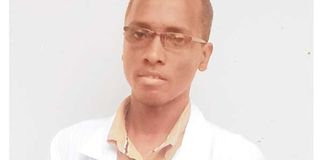Our suffering children that society hides

Children are the source of joy, indeed they are, and especially when they arrive at the moment they were expected; after a nine-month-long journey.
However, at times, the joy may be short-lived when a child is born with some unique features or show some features out of expectation later in the course of growth.
Albinism, deafness, blindness and other abnormal features are what I am referring to, here.
In our societies, more often, children with some unexpected features may end up living under harsh conditions at both family and community level. These children face countless challenges which can be eliminated simply through exercising unity and humanity in the communities/societies they live in.
To these children, one challenge is the core step towards the creation of another challenge—the tendency of being positioned behind the line by their own family members.
This amounts to alienation from the society. Most of them are being hidden from the world’s quick flow of information and this leaves them behind.
Eventually, their learning capabilities are affected. Some societies label them as mentally retarded and a few make it to school where they should have been interacting with the community.
I know of unpleasant Kiswahili names that these children are often given, such as zeruzeru, matahila, mizigo and so on.
The unavailability of supportive learning equipment, proper classrooms, and satisfying number of teachers are some of the things to address.
Bad enough, there is a tendency of some parents/guardians using school as the dumping site where they send the children without visiting to do some follow up on the progress of the these children.
Amani Primary School in Morogoro Region, which I have toured, is one special school for children with special needs; especially the deaf.
In this school, the challenges I have mentioned earlier, are being acknowledged.
Most of them are from families where they lacked prenatal. You can see this, when you try to analyse how they are striving to adopt to the new environment at school.
“Extra-care is highly needed for the safety and better growth of our children from the time of pregnancy till when they are born and so on. But, regardless of their features, education is still a crucial matter to all of our children, we need not to lock them inside but to let them join the community, learn and be part of the solution to our problems.”
Those were the words of Mr Jones Msechu, the Head of Amani Primary School when he spoke to a charity group composed of students from various universities in the name of Heaven-light foundation when they visited the school.
They had visited the children to remind them that they are part of the community.
What I also realised here is that lack of enough professional teachers, classrooms, clean water and electricity, are the common problems faced by the children.
Not only at Amani. Most schools for the disabled children are really challenged.
I also have a message to the jobless youth who would love to step in and help and make this their job. Amani Primary School is a good example of this.
The school has four classes, with only four teachers who teach more than five subjects. There is a great demand of teachers but they are not there, why? Simply because most of our youths are looking for office jobs.
Innovators out there
Children at Amani Primary School are deaf and actually depend on light and signs as their means of communication, not to mention much about water and electricity but at least can’t you utilise light to create emergency system to be installed at these school and other schools of the same quality?
Amani Primary School is nothing but a part of more schools out there where services of educated youths is highly needed.
But remember, early detection of any abnormality is a core step towards helping these children, we need not to hide them.
The author is based at the Catholic University of Health and Allied Sciences (CUHAS)




